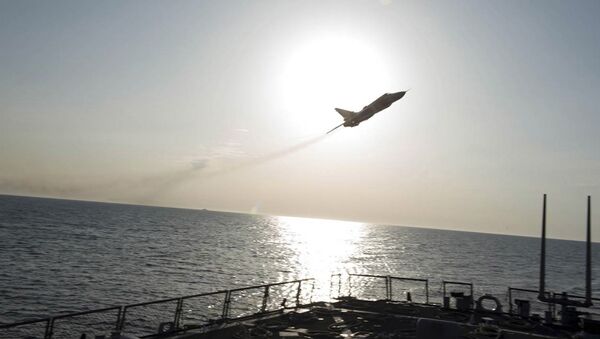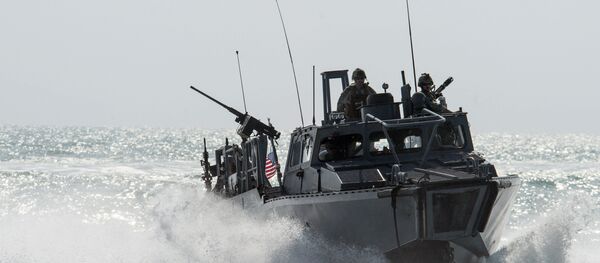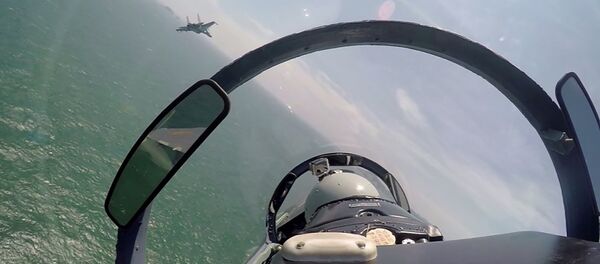Washington has repeatedly cried wolf over "provocations" on the part of Russia, China and Iran.
Last month the USS Nitze was intercepted by small patrol boats from Iran's Islamic Revolutionary Guard Corps while sailing through the Strait of Hormuz.
In early September the Pentagon raised the alarm when the USS Firebolt was reportedly "harassed" by Iranian ships in the Persian Gulf.
Commenting on the incident Brigadier General Masoud Jazayeri, deputy chief of staff of Iran's armed forces, denied the Pentagon's allegations, stressing that Iranian vessels acted in full accordance with international law.
As Iranian defense minister Gen. Hosein Dehghan said in an interview to Tasnim news agency: "If any foreign vessel enters our waters, we warn them and if it's an invasion, we confront."
While US officials were beating the drums over Tehran's "provocative behavior," no one asked what American heavily armed destroyers did near Iranian coasts.
"No one seemed to question why it was not provocative for the United States to sail a heavily armed destroyer (along with other warships) six thousand miles away from the American homeland to operate within a few miles of the Iranian coast," Carpenter emphasized, referring to the incident, which happened near the Strait of Hormuz.
The US' FONOP maneuvers carried out "thousands of miles from the American homeland" are portrayed as "perfectly normal" by Washington, despite the fact that they threaten to upset the fragile balance of power in the region.
Likewise, US warships maneuvering in the Baltic Sea and the Black Sea in waters close to Russia run a risk of inflaming conflict between Washington and Moscow.
However, it was Washington who cried wolf and accused Russia of "unsafe" and "unprofessional" maneuvers after Russia's Su-24 had flown over the US Navy missile destroyer Donald Cook in the Baltic Sea back in April.
"A US guided-missile destroyer only 70 nautical miles from Russian territory at Kaliningrad is given a stern display of aerobatics by two Sukhoi Su-24s — and then Washington erupts with accusations of being harassed by an 'insane flyby'," British writer and analyst Finian Cunningham wrote in his article for Sputnik.
According to Carpenter, the same flawed logic is demonstrated by Washington in Syria.
While Russia and Iran's involvement in the region's affairs is depicted as "outrageous and an indication of odious motives" by US hawks, "America's intervention from six thousand miles away is widely viewed as not only proper but inescapable, for both strategic and moral reasons," the US academic emphasized.
"How would the United States respond if the naval forces of another power sailed uninvited into waters close to US territorial waters-and did so repeatedly despite Washington's objections?" Carpenter asked.
There is something fishy about the US media stance that "we're the good guys, so nothing we do is wrong or provocative," he noted. To make matters worse, Washington's actions seem profoundly dangerous, the US academic warned.




